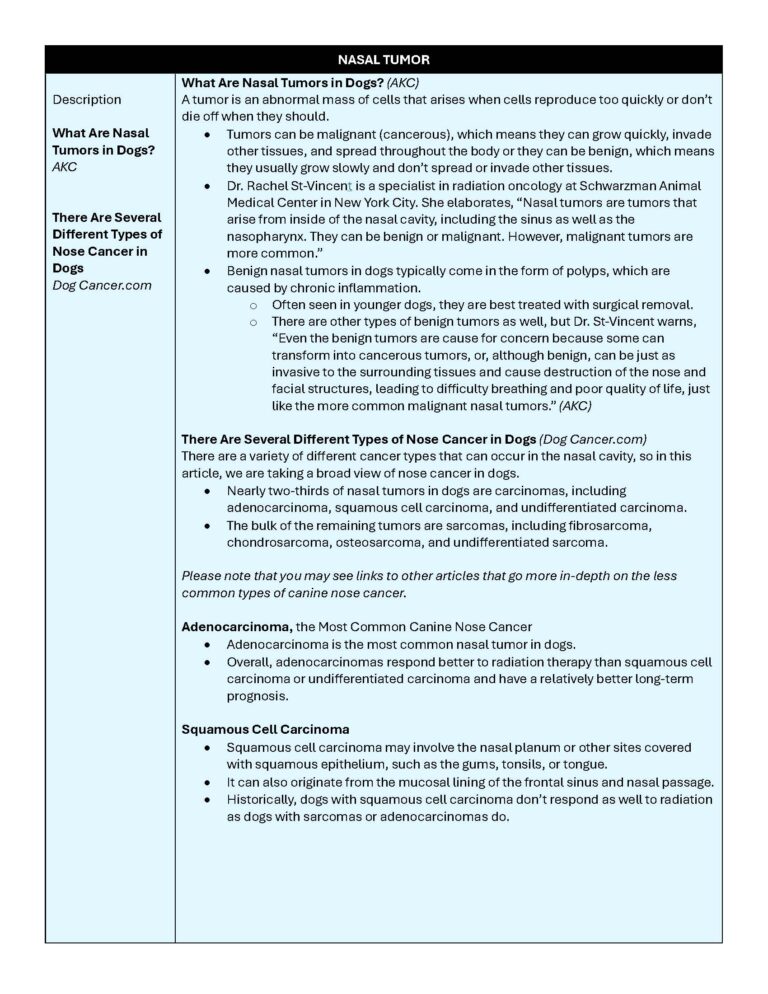Canine Nasal Tumors
(Cancer in the Nose)
& Breeds at Risk
Research, Resources & Education
This website is based on research and is NOT created to diagnose your pet.
Each animal is an individual and may exhibit symptoms in a different way.
It is advised that you ALWAYS CHECK WITH YOUR VETERINARIAN for a proper diagnosis and treatment plan.
Please visit Lost Temple Fitness & Cancer for more information of cancer in humans including
What is Cancer and Treatments.
Table of Contents
Canine Nasal Tumor
Dog nasal tumors can be in the nasal cavity, including the sinus or nasopharynx. These can be malignant or benign (polyps).
Dogs with long-noses living in urban environments are at higher risk for developing nasal tumors.
Symptoms include chronic nasal discharge, periodic sneezing, nosebleeds, facial and oral deformities and/or protrusion of the eyeball.
Treatment include chemotherapy, radiation or stereotactic radiosurgery.
What Dogs are at Risk?
Some Dogs that are at Risk due to Genetic Predisposition
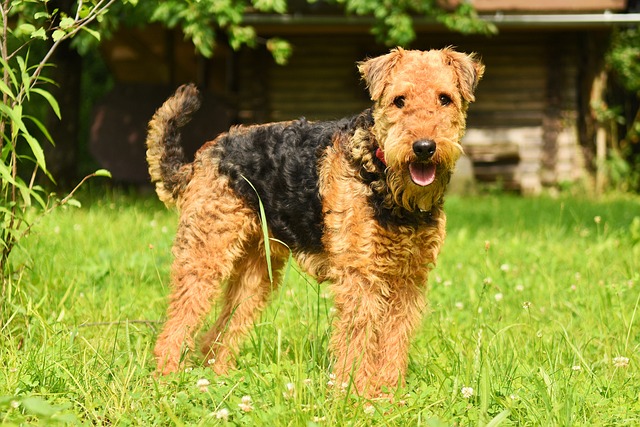
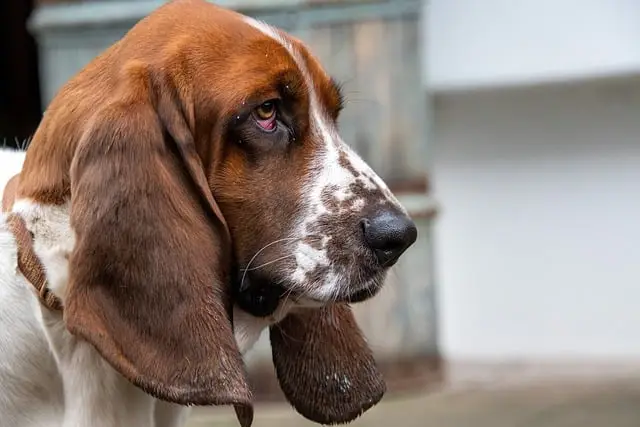
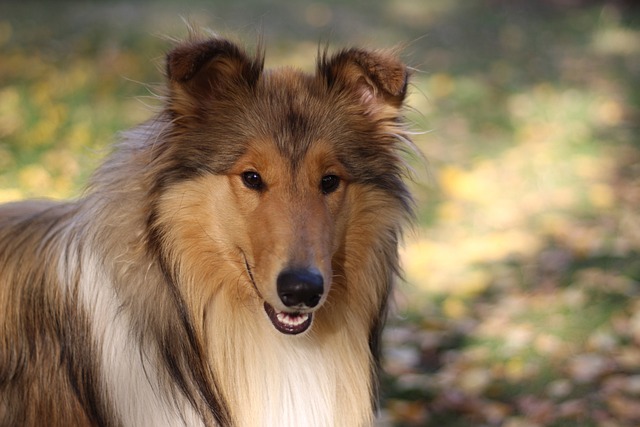

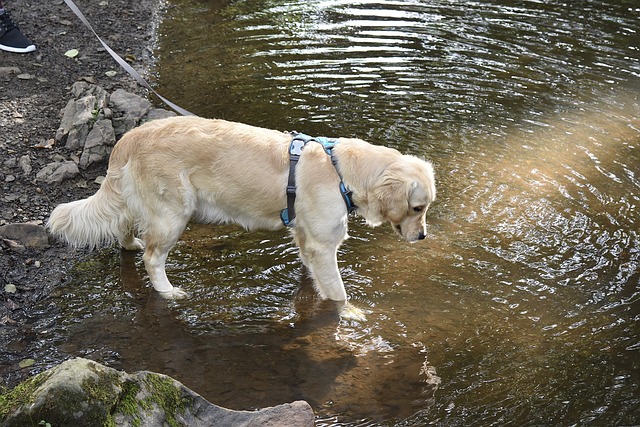
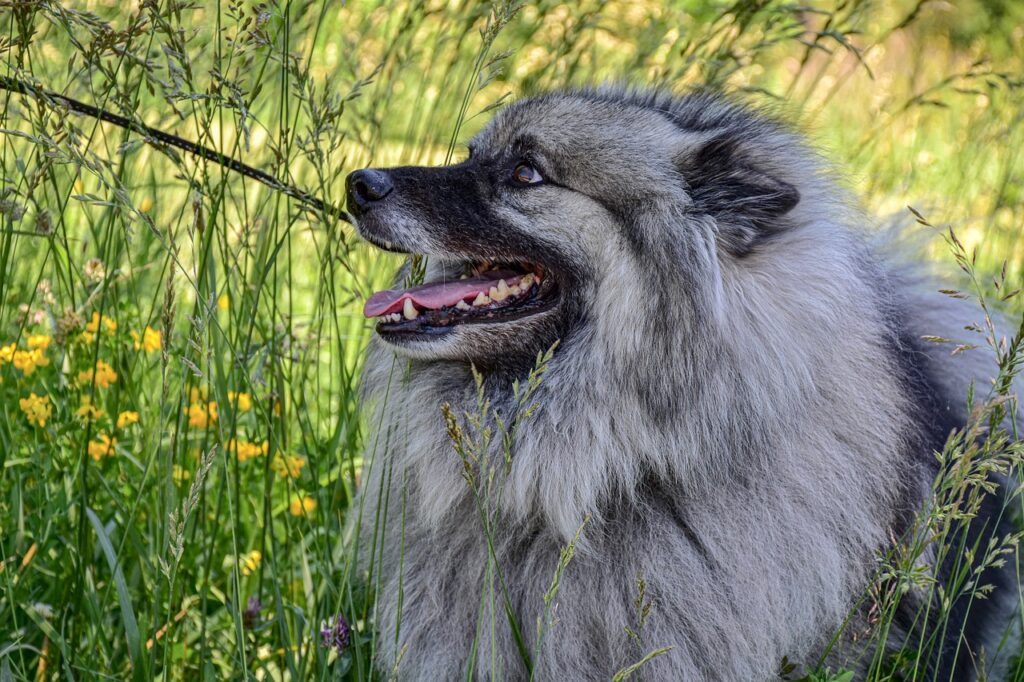
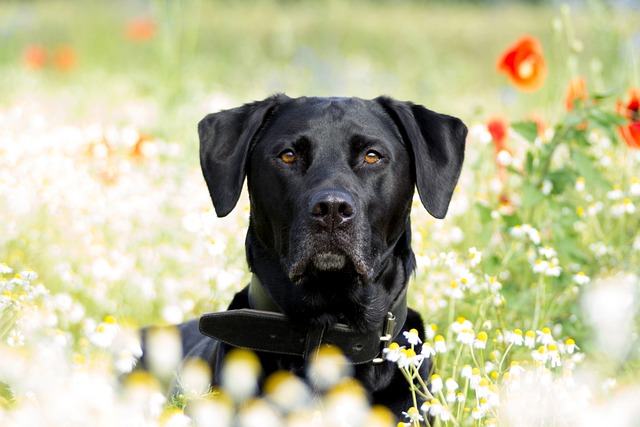
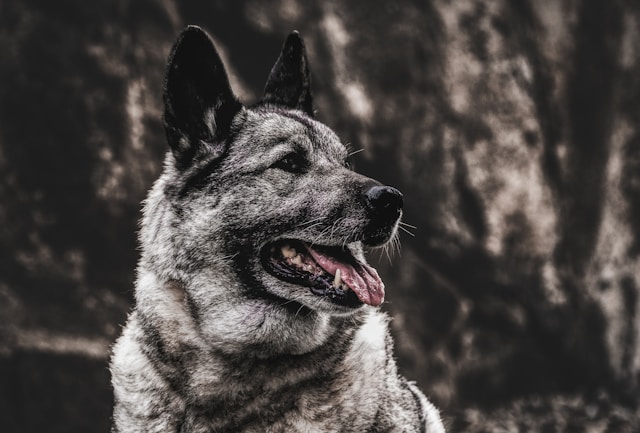

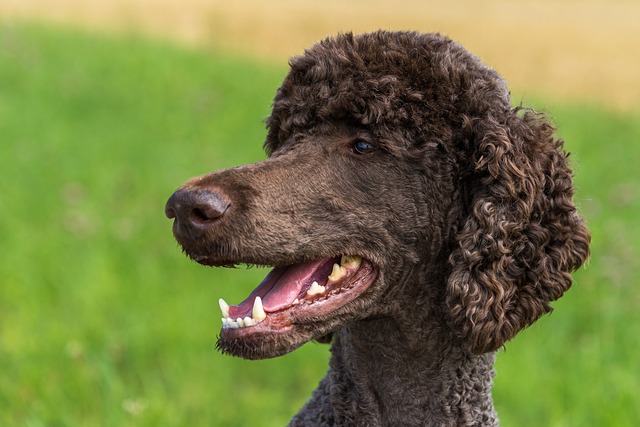
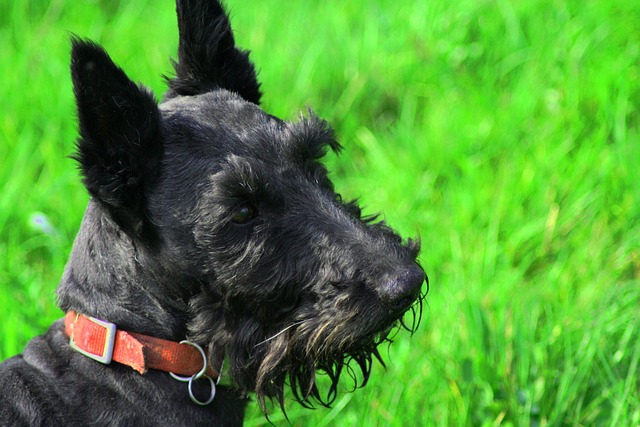
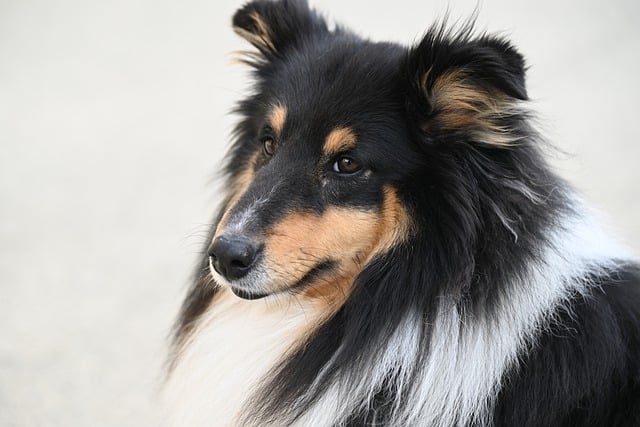
What are Nasal Tumors?
What Are Nasal Tumors in Dogs? (AKC)
What Are Nasal Tumors in Dogs? (AKC)
A tumor is an abnormal mass of cells that arises when cells reproduce too quickly or don’t die off when they should.
- Tumors can be malignant (cancerous), which means they can grow quickly, invade other tissues, and spread throughout the body or they can be benign, which means they usually grow slowly and don’t spread or invade other tissues.
- Rachel St-Vincentis a specialist in radiation oncology at Schwarzman Animal Medical Center in New York City. She elaborates, “Nasal tumors are tumors that arise from inside of the nasal cavity, including the sinus as well as the nasopharynx. They can be benign or malignant. However, malignant tumors are more common.”
- Benign nasal tumors in dogs typically come in the form of polyps, which are caused by chronic inflammation.
- Often seen in younger dogs, they are best treated with surgical removal.
- There are other types of benign tumors as well, but Dr. St-Vincent warns, “Even the benign tumors are cause for concern because some can transform into cancerous tumors, or, although benign, can be just as invasive to the surrounding tissues and cause destruction of the nose and facial structures, leading to difficulty breathing and poor quality of life, just like the more common malignant nasal tumors.” (AKC)
There Are Several Different Types of Nose Cancer in Dogs (Dog Cancer.com)
There Are Several Different Types of Nose Cancer in Dogs (Dog Cancer.com)
There are a variety of different cancer types that can occur in the nasal cavity, so in this article, we are taking a broad view of nose cancer in dogs.
- Nearly two-thirds of nasal tumors in dogs are carcinomas, including adenocarcinoma, squamous cell carcinoma, and undifferentiated carcinoma.
- The bulk of the remaining tumors are sarcomas, including fibrosarcoma, chondrosarcoma, osteosarcoma, and undifferentiated sarcoma.
Please note that you may see links to other articles that go more in-depth on the less common types of canine nose cancer.
Adenocarcinoma, the Most Common Canine Nose Cancer
- Adenocarcinoma is the most common nasal tumor in dogs.
- Overall, adenocarcinomas respond better to radiation therapy than squamous cell carcinoma or undifferentiated carcinoma and have a relatively better long-term prognosis.
Squamous Cell Carcinoma
- Squamous cell carcinoma may involve the nasal planum or other sites covered with squamous epithelium, such as the gums, tonsils, or tongue.
- It can also originate from the mucosal lining of the frontal sinus and nasal passage.
- Historically, dogs with squamous cell carcinoma don’t respond as well to radiation as dogs with sarcomas or adenocarcinomas do.
Undifferentiated Carcinoma
- Undifferentiated carcinoma translates to “undifferentiated tumor.” This refers to a tumor with little or no evidence of differentiation, meaning it does not resemble normal tissue.
- Nasal undifferentiated carcinoma is believed to originate from the Schneiderian epithelium (the membranous lining of the maxillary sinus cavity) or the nasal ectoderm of the paranasal sinuses.
- Given the undifferentiated nature of this malignancy, immunohistochemical analysis (see below) is constructive so your veterinarian can confidently formulate a treatment plan.
- Historically, dogs with undifferentiated carcinoma have a poorer outcome after radiation therapy than those with sarcomas or adenocarcinomas.
Chondrosarcoma
- Chondrosarcoma is a malignant tumor involving the cells that produce cartilage matrix (the stuff cartilage is made from).
- Dogs with intranasal chondrosarcomas may have better treatment responses than dogs with adenocarcinoma or squamous cell carcinoma.
Osteosarcoma
- Osteosarcoma is a malignant mesenchymal tumor and is the most common primary bone tumor in dogs. Osteosarcoma accounts for 6% of nasal tumors.
Undifferentiated Sarcoma
- Undifferentiated sarcoma is a type of soft tissue sarcoma, also called unclassified sarcoma.30
Nose Cancer in Dogs Can Be Hard to Diagnose Accurately
- Nasal tumors often represent a diagnostic and therapeutic challenge due to their confined location within the nasal cavities.2
- It can be difficult to see them clearly because of the tight space and the complex nasal cavity structures. It can be challenging to treat them for the same reason. (Dog Cancer.com)
Nasal Tumor Videos
YouTube Videos that help explain Nasal Tumors in Dogs
Disclaimer:
This is for research only and Lost Temple Pets does not endorse any video presented on this website.
It is advised that you ALWAYS CHECK WITH YOUR VETERINARIAN for a proper diagnosis and treatment plan.
Causes and Risk Factors
Causes of Nasal Adenocarcinoma in Dogs (PetMD by Chewy)
Causes of Nasal Adenocarcinoma in Dogs (PetMD by Chewy)
Although the exact cause for nasal adenocarcinoma is considered idiopathic (unknown), risks appear to increase with exposure to tobacco smoke, kerosene, coal combustion and other airborne pollutants.
- Due to these types of exposures, dogs in urban environments, especially dogs with longer noses, tend to have higher incidences of this cancer.
- Flea sprays has also been correlated with the development of nasal tumors in dogs. (PetMD by Chewy)
What Causes Nasal Tumors in Dogs? (AKC)
What Causes Nasal Tumors in Dogs? (AKC)
Unfortunately, research has yet to show any specific causes of nasal tumors in dogs.
- Chronic inflammation commonly contributes to the development of cancer, so dogs who suffer chronic allergies might be predisposed.
- Also, although Dr. St-Vincent says there is not enough data to support a definitive cause, there is suspicion that pollutants may play a role in nasal tumors. “Insecticides and herbicides are two pollutants that many dogs may be exposed to by sniffing grass in public parks,” she explains. “The incidence of nasal tumors in dogs is thought to be higher in urban areas, likely because of increased exposure to pollutants.”
- In addition, research says nasal tumors are more common in long-nosed dogs like sighthounds, but Dr. St-Vincent says vets still see nasal tumors in some flat-faced breeds with short snouts. (AKC)
Risk Factors for Developing Canine Nose Cancer (Dog Cancer.com)
Risk Factors for Developing Canine Nose Cancer (Dog Cancer.com)
A few factors can increase your dog’s risk of developing nasal cancer.
- Long-nosed dogs living in urban environments are at higher risk for developing nasal tumors.
- There is a higher incidence in males than in females.
- On average, dogs are 9.5–10 years old when diagnosed. (Dog Cancer.com)
What Causes this Cancer? (VCA Animal Hospital)
What causes this cancer? (VCA Animal Hospital)
Very few cancers have a single known cause. In the case of nasal tumors, exposure to cigarette smoke and living in urban environments appear to be risk factors.
- In cats, the risk may increase with the exposure to certain viruses.
- Cats with histories of feline leukemia virus or feline immunodeficiency virus may be predisposed to developing lymphoma, including nasal lymphoma. (VCA Animal Hospital)
Symptoms
Nasal Cancer in Dogs Symptoms (Dog Cancer.com)
Nasal Cancer in Dogs Symptoms (Dog Cancer.com)
The symptoms you might notice at home will vary depending on the exact location of your dog’s nasal tumor and the type of cancer he or she has.
Here are some symptoms you might see:
- Chronic nasal discharge (this is the most common clinical finding)
- Periodic sneezing
- Nosebleeds
- Abnormal sounds when breathing
- Facial and oral deformities resulting from the destruction of bone or soft tissues
- Protrusion of the eyeball
- Secondary epiphora (tearing of the eye) may occur if the nasolacrimal duct is blocked (Dog Cancer.com)
What are the Clinical Signs of Nasal Tumors? (VCA Animal Hospital)
What are the clinical signs of nasal tumors? (VCA Animal Hospital)
- Most pets with nasal tumors have a nasal discharge (usually pus-like or streaked with blood) from one or both nostrils, noisy breathing (from airflow obstruction), coughing, lethargy, decreased appetite, and weight loss.
- Some pets, especially cats, will develop facial deformities as the tumor grows.
- Neurological signs (e.g., seizures, sudden onset of blindness, walking in circles, muscular weakness, and behavior changes) are rare, but may be the only signs seen. (VCA Animal Hospital)
Testing and Staging
Treating for More Common Problems First (Dog Cancer.com)
Treating for More Common Problems First (Dog Cancer.com)
Treating for a fungal infection or allergies first because they are more common, and only considering nasal tumors when those treatments don’t work delays diagnosis. This is unfortunate.
- However, it’s also the way that medicine works: we look for and treat the most common cause first, and only move on to other possibilities if that doesn’t work.
- As you will see below, the testing necessary to diagnose and treat cancer is much more expensive than treating simpler and more common issues like allergies.
An Overview of Diagnostics for Nose Tumors
Once your veterinarian has eliminated another cause for your dog’s symptoms, they will use a variety of tests to determine if your dog’s symptoms are caused by cancer and, if so, what type of cancer is present.
Additional testing may include:
- A tissue biopsy for a definitive diagnosis
- Conventional radiography (x-rays) can be helpful, but CT is preferred to get a more detailed look at the extent of the tumor
- If a nasal tumor is diagnosed, three‐view thoracic radiographs of the lungs are recommended to evaluate for metastases
- Needle aspirates of the local lymph nodes are also recommended to evaluate for spread of disease
- Nasal hydropulsion using a high-pressure saline infusion into the nose often yields diagnostic samples (and may also clear some blockages)
- Abdominal ultrasound may be recommended to complete staging
Staging and Prognosis for Nasal Cancer in Dogs
Staging is a process of tests that allows your veterinarian or oncologist to determine how severe your dog’s cancer is and if it has spread.
- Staging may impact your dog’s prognosis and which treatment options are available. It may also impact your treatment decisions.
Staging of Nose Cancers
Several staging systems based on radiographic, or CT findings have been proposed in canine nasal tumors, but their prognostic significance remains controversial.
The Adams modified staging system developed in 2009 is the most recent system that has been adapted for use.1
- Stage T1: Confined to one nasal passage, paranasal sinus, or frontal sinus with no involvement of bone
- Stage T2: Any bony involvement but no evidence of orbital (around the eye), subcutaneous (under the skin), or submucosal (under the mucous membranes) mass
- Stage T3: Involvement of orbit, subcutaneous, or submucosal mass
- Stage T4: Tumor extension into the nasopharynx (where the nasal cavity meets the soft palate) or cribriform plate (roof of the nasal cavity) (Dog Cancer.com)
Treatment
How are Nasal Tumors Treated and Side Effects? (UF Small Animal Hospital)
How are nasal tumors treated? (UF Small Animal Hospital)
Dogs and cats with nasal tumors usually present with a relatively advanced stage of the cancer in a critical location near the brain and eyes. Invasion into bone often occurs early and curative surgery is not possible.
- Chemotherapy alone yields only a 30% response rate, and this response is usually short-lived.
- Definitive radiation therapy is the treatment of choice in dogs and cats with intranasal cancers. This involves 18-22 treatments administered daily Monday-Friday.
- Additionally, stereotactic radiosurgery is a procedure that consists of a one-time, high dose of radiation delivered in multiple arcs that target the center of the tumor, minimizing damage to normal tissue around the tumor.
- If the tumor is close to or invading important structures such as the eyes or the brain, it may be necessary to use stereotactic radiation therapy (SRT).
- The difference between the two is that instead of delivering one large dose, SRT would consist of several (up to three) smaller doses to minimize side effects of the eyes and the brain.
- Radiation therapy will result in improvement or resolution of clinical signs in the majority of patients.
What are the side effects of treatment?
Side effects are usually minimal but can include the following:
- Change in fur color
- Peeling of the skin
- Ulceration
- Ulcers and burn-like side effects are temporary and can usually be managed with antibiotics and anti-inflammatory medications.
- Depending on how close the tumor is to the eyes, the tear production can be compromised, resulting in dry eye. (UF Small Animal Hospital)
References
References
AKC (American Kennel Club) – Nasal Tumors in Dogs: Signs, Symptoms, Treatment
https://www.akc.org/expert-advice/health/nasal-tumors-in-dogs/
Dog Cancer.com – Nose Cancer in Dogs
By Nathalia Juocys Dias Moreira, MS, Leah Talesnick, DVM, CCRP
Medically Reviewed by Jenny Cassibry Fisher, RVT, VTS. Updated on August 30, 2023
https://www.dogcancer.com/articles/types-of-dog-cancer/nose-cancer-in-dogs/
National Canine Cancer Foundation – Nasal Chondrosarcoma
https://wearethecure.org/learn-more-about-canine-cancer/canine-cancer-library/nasal-chondrosarcoma/
PetMD by Chewy – Nasal Tumors in Dogs
By Jamie Case, DVM. Updated Oct. 7, 2023
https://www.petmd.com/dog/conditions/cancer/nasal-tumors-dogs
(UF Small Animal Hospital) – College of Veterinary Medicine – Nasal Tumors in Dogs
(VCA Animal Hospital)- Nasal Tumors
By Ryan Llera, BSc, DVM; Debbie Stoewen DVM, MSW, RSW, PhD; Christopher Pinard, DVM
Cancer/Breed Chart
| BREED | BRAIN | HEMANGIO- SARCOMA | LYMPHOMA | MAMMARY TUMORS | MAST CELL TUMOR | MELANOMA | NASAL TUMOR | ORAL | OSTEOSARCOMA | PERIANAL/ ANAL SAC | SOFT TISSUE SARCOMA | TRANSITIONAL (TCC) / UROTHELIAL (UC) |
|---|---|---|---|---|---|---|---|---|---|---|---|---|
| Airedale Terrier | Lymphoma | Melanoma | Nasal Tumor | Soft Tissue Sarcoma | TCC or UC | |||||||
| Basset Hound | Hemangiosarcoma | Lymphoma | Nasal Tumor | Soft Tissue Sarcoma | ||||||||
| Bulldog, English | Brain | Lymphoma | Mast Cell Tumor | Perianal/Anal Sac | Soft Tissue Sarcoma | |||||||
| Bullmastiff | Lymphoma | Mast Cell Tumor | Soft Tissue Sarcoma | |||||||||
| St. Bernard | Lymphoma | Osteosarcoma | Soft Tissue Sarcoma | |||||||||
| Golden Retriever | Brain | Hemangiosarcoma | Lymphoma | Mast Cell Tumor | Melanoma | Oral | Osteosarcoma | Perianal/Anal Sac | Soft Tissue Sarcoma | |||
| Labrador Retriever | Hemangiosarcoma | Lymphoma | Mast Cell Tumor | Melanoma | Nasal Tumor | Oral | ||||||
| Scottish Terrier | Brain | Lymphoma | Melanoma | Nasal Tumor | Oral | Soft Tissue Sarcoma | TCC or UC | |||||
| Boxer | Brain (Glioma) | Hemangiosarcoma | Lymphoma | Mammary Tumor | Mast Cell Tumor | Oral | Osteosarcoma | Soft Tissue Sarcoma | ||||
| Beagle | Hemangiosarcoma | Lymphoma | Mast Cell Tumor | Perianal/Anal Sac | TCC or UC | |||||||
| West Highland White Terrier | Lymphoma | |||||||||||
| Chow Chow | Lymphoma | Melanoma | Oral | |||||||||
| Poodle, Standard | Lymphoma | Melanoma | Nasal Tumor | Oral | ||||||||
| Rottweiler | Lymphoma | Oral | Osteosarcoma | |||||||||
| Poodle, Toy | Lymphoma | Mammary Tumor | Melanoma | Nasal Tumor | ||||||||
| Yorkshire Terrier | Lymphoma | Mammary Tumor | ||||||||||
| German Shepherd | Hemangiosarcoma | Lymphoma | Mammary Tumor | Melanoma | Nasal Tumor | Oral | Osteosarcoma | Perianal/Anal Sac | ||||
| Poodle, Miniature | Lymphoma | Mammary Tumor | Melanoma | Nasal Tumor | Oral | |||||||
| Affenpinscher | ||||||||||||
| Afghan Hound | ||||||||||||
| Alaskan Malamute | Perianal/Anal Sac | |||||||||||
| American Eskimo, Toy and Standard | ||||||||||||
| American Foxhound | ||||||||||||
| American Pitt Bull Terrier | Hemangiosarcoma | |||||||||||
| American Staffordshire Terrier | ||||||||||||
| American Water Spaniel | ||||||||||||
| Anatolian Shepherd Dog | ||||||||||||
| Australian Cattle Dog | TCC or UC | |||||||||||
| Australian Shepherd | TCC or UC | |||||||||||
| Australian Terrier | ||||||||||||
| Basenji | ||||||||||||
| Bearded Collie | ||||||||||||
| Beauceron | ||||||||||||
| Bedlington Terrier | ||||||||||||
| Belgian Groenendael | ||||||||||||
| Belgian Malinois | ||||||||||||
| Belgian Tervuren | ||||||||||||
| Bernese Mountain Dog | Hemangiosarcoma | Melanoma | Soft Tissue Sarcoma | |||||||||
| Bichon Frise’ | TCC or UC | |||||||||||
| Black and Tan Coonhound | ||||||||||||
| Black Russian Terrier | ||||||||||||
| Bloodhound | Soft Tissue Sarcoma | |||||||||||
| Boerboel | ||||||||||||
| Border Collie | Brain | TCC or UC | ||||||||||
| Border Terrier | ||||||||||||
| Borzoi | Osteosarcoma | |||||||||||
| Boston Terrier | Brain | Mast Cell Tumor | Melanoma | Soft Tissue Sarcoma | ||||||||
| Bouvier des Flandres | Soft Tissue Sarcoma | |||||||||||
| Briard | ||||||||||||
| Brussels Griffon | ||||||||||||
| Bull Terrier | Mast Cell Tumor | Melanoma | ||||||||||
| Bull Terrier, Miniature | Mast Cell Tumor | Melanoma | ||||||||||
| Cairn Terrier | ||||||||||||
| Canaan Dog | ||||||||||||
| Cane Corso (Italian Mastiff) | ||||||||||||
| Caucasian Shepherd | ||||||||||||
| Cavalier King Charles Spaniel | Perianal/Anal Sac | |||||||||||
| Chesapeake Bay Retriever | Melanoma | |||||||||||
| Chinese Crested | ||||||||||||
| Chinese Shar-Pei | Mast Cell Tumor | Soft Tissue Sarcoma | TCC or UC | |||||||||
| Clumber Spaniel | ||||||||||||
| Curly Coated Retriever | ||||||||||||
| Dalmation | Hemangiosarcoma | |||||||||||
| Dandie Dinmont Terrier | ||||||||||||
| Dogo Argentino | ||||||||||||
| Dogue de Bordeaux | ||||||||||||
| English Foxhound | ||||||||||||
| English Toy Spaniel AKA King Charles Spaniel | ||||||||||||
| Field Spaniel | ||||||||||||
| Finnish Spitz | ||||||||||||
| Flat-Coated Retriever | Hemangiosarcoma | |||||||||||
| Fox Terrier, Smooth | Mast Cell Tumor | |||||||||||
| Fox Terrier, Toy | Mast Cell Tumor | |||||||||||
| Fox Terrier, Wire | TCC or UC | |||||||||||
| French Bulldog | ||||||||||||
| German Pinscher | ||||||||||||
| German Wirehaired Pointer | ||||||||||||
| Glen of Imaal Terrier | ||||||||||||
| Great Dane | Brain | Osteosarcoma | Soft Tissue Sarcoma | |||||||||
| Great Pyrenees | ||||||||||||
| Greater Swiss Mountain Dog | ||||||||||||
| Greyhound | Brain (Meningioma) | Hemangiosarcoma | Osteosarcoma | Soft Tissue Sarcoma | ||||||||
| Harrier | ||||||||||||
| Havanese | ||||||||||||
| Ibizan Hound | ||||||||||||
| Irish Terrier | ||||||||||||
| Irish Water Spaniel | ||||||||||||
| Irish Wolfhound | Osteosarcoma | |||||||||||
| Italian Greyhound | Brain | Hemangiosarcoma | ||||||||||
| Japanese Chin | ||||||||||||
| Keeshond | Nasal Tumor | |||||||||||
| Kerry Blue Terrier | ||||||||||||
| Komondor | ||||||||||||
| Kuvasz | ||||||||||||
| Lakeland Terrier | ||||||||||||
| Leonberger | Osteosarcoma | |||||||||||
| Lhasa Apso | TCC or UC | |||||||||||
| Lowchen | ||||||||||||
| Manchester Terrier Toy | ||||||||||||
| Manchester Terrier, Standard | ||||||||||||
| Mastiff | Brain | |||||||||||
| Miniature Pincher | ||||||||||||
| Neapolitan Mastiff | ||||||||||||
| Newfoundland | ||||||||||||
| Norfolk Terrier | ||||||||||||
| Norwegian Buhund | ||||||||||||
| Norwegian Elkhound | Brain | Nasal Tumor | ||||||||||
| Norwich Terrier | ||||||||||||
| Nova Scotia Duck Tolling Retriever | ||||||||||||
| Old English Sheepdog | Brain | |||||||||||
| Otterhound | ||||||||||||
| Papillon | ||||||||||||
| Parsons Russell Terrier | TCC or UC | |||||||||||
| Pekingese | Brain | |||||||||||
| Petit Basset Griffon Vendeen (PBGV) | ||||||||||||
| Pharaoh Hound | ||||||||||||
| Plott Hound | ||||||||||||
| Polish Lowland Sheepdog | ||||||||||||
| Pomeranian | ||||||||||||
| Portuguese Water Dog | Brain | Hemangiosarcoma | ||||||||||
| Presa Canario | ||||||||||||
| Pug | Brain | Mast Cell Tumor | Soft Tissue Sarcoma | |||||||||
| Puli | ||||||||||||
| Pyrenean Shepherd | ||||||||||||
| Rhodesian Ridgeback | Mast Cell Tumor | Soft Tissue Sarcoma | ||||||||||
| Saluki | ||||||||||||
| Samoyed | Perianal/Anal Sac | |||||||||||
| Schipperke | ||||||||||||
| Schnauzer, Miniature | Mast Cell Tumor | Melanoma | Perianal/Anal Sac | Soft Tissue Sarcoma | ||||||||
| Schnauzer, Standard | Mast Cell Tumor | Melanoma | Soft Tissue Sarcoma | |||||||||
| Sealyham Terrier | ||||||||||||
| Shiba Inu | ||||||||||||
| Shih Tzu | Brain | |||||||||||
| Siberian Husky | Perianal/Anal Sac | |||||||||||
| Silky Terrier | ||||||||||||
| Skye Terrier | Hemangiosarcoma | |||||||||||
| Soft-Coated Wheaten Terrier | ||||||||||||
| Spinone Italiano | ||||||||||||
| Staffordshire Bull Terrier | Mast Cell Tumor | |||||||||||
| Sussex Spaniel | ||||||||||||
| Swedish Vallhund | ||||||||||||
| Tibetan Mastiff | ||||||||||||
| Tibetan Spaniel | ||||||||||||
| Tibetan Terrier | ||||||||||||
| Tosa | ||||||||||||
| Vizsla | Melanoma | |||||||||||
| Weimaraner | Mast Cell Tumor | |||||||||||
| Welsh Corgi, Cardigan | ||||||||||||
| Welsh Corgi, Pembroke | ||||||||||||
| Welsh Springer Spaniel | ||||||||||||
| Welsh Terrier | ||||||||||||
| Whippet | Hemangiosarcoma | TCC or UC | ||||||||||
| Wirehaired Pointing Griffon | ||||||||||||
| Akita (American) | Oral | |||||||||||
| Collie, Rough / Smooth Coat | Brain (Meningioma) | Nasal Tumor | Oral | TCC or UC | ||||||||
| Gordon Setter | Melanoma | Oral | ||||||||||
| Irish Setter | Melanoma | Oral | Osteosarcoma | Soft Tissue Sarcoma | ||||||||
| Schnauzer, Giant | Mast Cell Tumor | Melanoma | Oral | |||||||||
| Scottish Deerhound | Brain | Melanoma | Oral | Osteosarcoma | TCC or UC | |||||||
| Shetland Sheepdog | Nasal Tumor | Oral | TCC or UC | |||||||||
| Brittany | Mammary Tumor | |||||||||||
| Chihuahua | Mammary Tumor | Melanoma | ||||||||||
| English Cocker Spaniel | Mammary Tumor | |||||||||||
| English Setter | Mammary Tumor | |||||||||||
| English Springer Spaniel | Mammary Tumor | Melanoma | Perianal/Anal Sac | |||||||||
| Maltese | Mammary Tumor | |||||||||||
| Pointer | Hemangiosarcoma | Mammary Tumor | ||||||||||
| Cocker Spaniel (American) | Mammary Tumor | Mast Cell Tumor | Melanoma | Oral | Perianal/Anal Sac | |||||||
| Dachshund | Brain | Mammary Tumor | Mast Cell Tumor | Oral | Perianal/Anal Sac | |||||||
| Doberman Pinscher | Brain | Mammary Tumor | Melanoma | Oral | Osteosarcoma | |||||||
| German Shorthaired Pointer | Mammary Tumor | Nasal Tumor | Oral |
